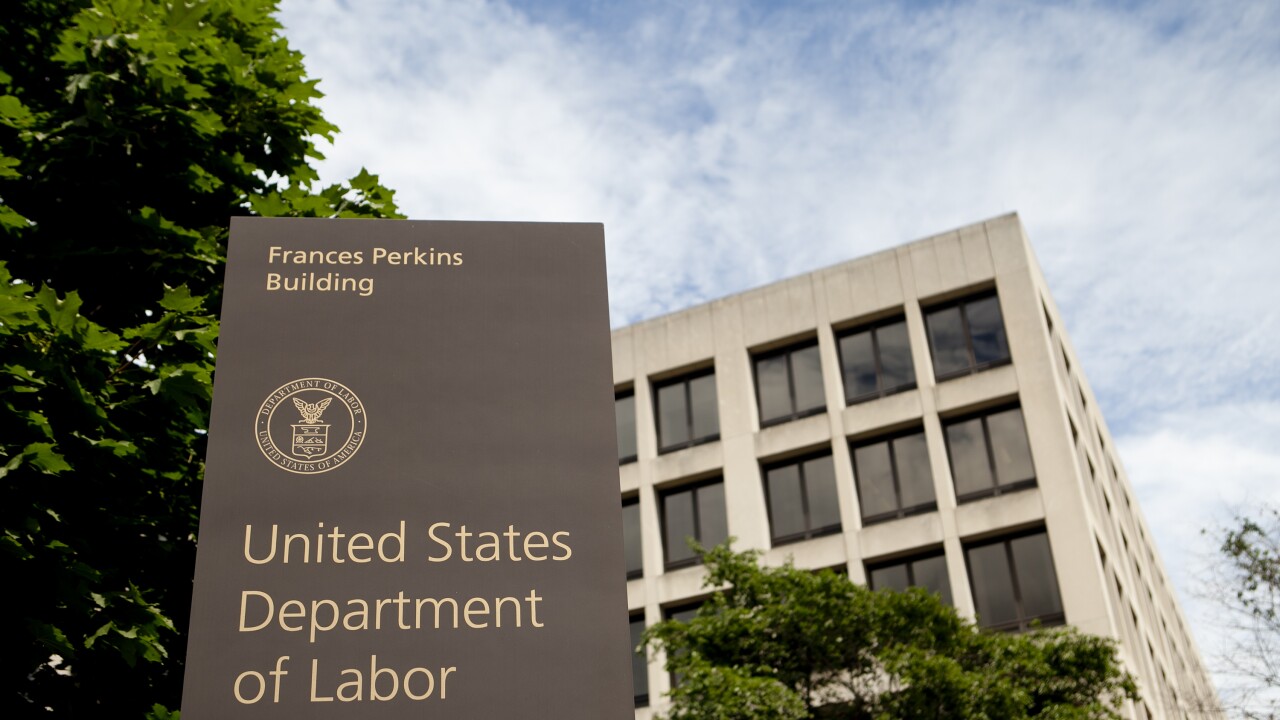President Donald Trump is pitching the Republican tax-cut plan as aimed primarily at helping middle-class Americans, but the biggest beneficiaries of cuts in the individual tax rates are in the wealthiest income brackets.
A study from Congress’s own think tank provides some of the most recent evidence of this. The nonpartisan Congressional Research Service concluded that under the Senate plan, Americans making between $500,000 and $1 million a year would see the biggest percentage increases in their after-tax income.
By contrast, the CRS found that taxpayers making less than $30,000 would see their after-tax income decline as soon as 2021.

Such analyses haven’t altered the Republican campaign to promote the tax cuts.
“Our focus is on helping the folks who work in the mailrooms and machine shops of America, the plumbers and the carpenters, the cops and the teachers, the truck drivers and the pipe fitters,” Trump says in excerpts of a speech he’s set to deliver Wednesday afternoon in Missouri. “It is not enough for the middle class to keep getting by—we want them to start getting ahead.”
Economic Growth
Republican senators, who are working toward a vote this week, argue that their bill would help the middle class, both through reductions to their tax rates and because cuts to corporate rates would spark economic growth that will boost incomes in the coming years.
“This is not a bill that’s primarily designed to benefit the wealthy and the large businesses,” John Cornyn, the Senate’s No. 2 Republican, said on Fox News Tuesday morning. “This is designed to help middle-income taxpayers get the economy growing again and bring down the tax burden across all tax brackets.”
GOP senators have largely downplayed many of the studies from outside analysts of their bill’s effects, along with those from Congress’s own experts.
For example, the CRS attributed the anticipated decline in income for Americans making less than $30,000 in part to the measure’s repeal of Obamacare’s requirement to buy health insurance or pay a federal penalty.
Health Insurance
Congressional forecasters say millions of people will forgo insurance coverage if the mandate is repealed, meaning they’d no longer get tax credits to help cover their insurance premiums. But Republicans have rejected this argument, saying the change will protect Americans from having to purchase expensive insurance or pay a penalty.
Senate Finance Chairman Orrin Hatch said Monday he wasn’t confident in the accuracy of a report by the Congressional Budget Office, which is the official scorekeeper for the fiscal impact of legislation.
The CBO found that the Senate bill as written would provide less benefit from federal spending to the poorest taxpayers—those earning less than $30,000 a year—as early as 2019. By 2021, all income groups making less than $40,000 a year would be net losers, according to Sunday’s CBO report. It also shows people from $50,000 to $75,000 facing additional costs by 2027.
“I don’t think they’re right,” Hatch said of the CBO’s findings in a report published Sunday.
Different Metrics
The CBO measured how much the federal government would save in spending or lose in revenue to different income groups, while the CRS study showed the percent change in after-tax income.
Hatch requested a follow-up CBO report that excludes the impact of removing the penalty to enforce the individual mandate. That report, published Monday, also found that filers bringing in less than $75,000 would see less tax benefits, but not until 2027.
The difference is due to less government spending on premium tax credits, Medicaid, Medicare, cost-sharing reduction payments and other health programs that largely benefit the poor, according to the CBO report.
Analyses of the House-passed tax bill, H.R. 1, have similar findings about which income groups benefit the most. The CRS found that taxpayers with incomes of more than $1 million “tend to experience the greatest percentage increases in after-tax income” under that measure, while those who make less than $40,000 could see their income fall in 2023.
Democrats have criticized the Republican tax overhaul for slashing rates for corporations and the highest earners, while adding more than $1 trillion to the deficit and erasing breaks for some middle-income people.
Expiring Rates
To fit Senate budget rules that allow Republicans to pass a tax bill with 50 votes, the Senate bill sets the cuts to individual tax rates to expire in 2026. The CRS and the CBO analyze the bill as written, although Republicans insist that Congress would extend those cuts.
Senator Pat Toomey of Pennsylvania said it’s possible that some Democrats will still get on board with their bill.
“It lowers taxes for middle-income families and low-income families,” Toomey said in an interview on Bloomberg TV. “It gives the people they represent a pay raise by virtue of lowering the amount of money they have to send to Uncle Sam.”
That may be true for the first year that the Senate bill would be law, according to the CRS report, but that benefit evaporates by 2021 for households earning $10,000 to $30,000. A statement from Toomey’s press office said the study from the JCT study that excludes the impact of repealing the individual mandate should be the reference, rather than the CRS report. That JCT study also shows taxpayers earning less than $75,000 owing more to the federal government by 2027 under the Senate proposal.
In the House bill, the CRS report identifies two factors that would leave middle class families with a higher tax burden: an expiring family tax credit and the method by which income brackets are adjusted for inflation.
House Speaker Paul Ryan said the family tax credit of $300 for each parent and some dependents won’t end up expiring, even though that’s how the House bill is written, because future lawmakers will be pressured to extend it.





